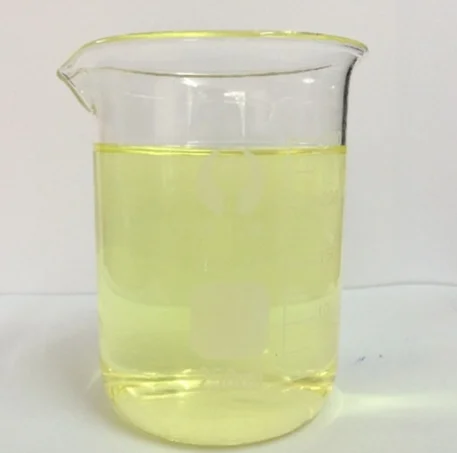Sodium hypochlorite (NaOCl) is one of the chemical compositions that are a fundamental part of various industries and domestic functions in India. Available mainly for its disinfecting and bleaching capabilities, sodium hypochlorite helps in sustaining health and hygiene at the highest level. Having traveled long as the top manufacturer, trader, supplier, and exporter of specialty chemicals with sodium hypochlorite too, VRIK PHARMA ensures the quality of this precious chemical. We have 18 years of experience in the chemical industry and an ISO certification to ensure that what we put on the market is safe and effective.
What is Sodium Hypochlorite?
Sodium hypochlorite is formed by reacting chlorine with sodium hydroxide. It is a pale greenish-yellow liquid with a distinctive smell of chlorine and is typically referred to as bleach. There are concentrations between 3 and 8% for sodium hypochlorite when used as a household bleach. Its property of acting as an effective disinfectant makes sodium hypochlorite in high demand both in homes and industries.
Key Uses of Sodium Hypochlorite in India
1. Water Purification
Sodium hypochlorite is used for the treatment of water. It is highly used in areas in India where people suffer from a lack of drinking water. Water containing dangerous microbes and viruses that cause cholera and typhoid fever can be adequately killed by using sodium hypochlorite. Municipal water-treating plants largely use sodium hypochlorite to ensure that the water supplied through pipes is nontoxic and pure.
2. Household Cleaning and Disinfection
Sodium hypochlorite is a household product in many Indian houses, used for various cleaning and disinfecting purposes. Its strong oxidizing power can kill several types of mold, mildew, and bacteria. Because the solution’s properties are very strong, many people dilute bleach solutions and clean kitchens and bathrooms, among other germ-infested surfaces. Application Sodium hypochlorite can be applied in many cleaning tasks-for instance, laundry and surface disinfection.
3. Food Industry Applications
Sodium hypochlorite is a hygienic requirement in the food processing industry. It assists in dispersing onto equipment and surfaces in the food preparation stations, thereby creating hygiene at every level in the food. Sodium hypochlorite prevents the growth of hazardous microorganisms, thus preventing food diseases and hence food safety.
4. Swimming Pool Maintenance
Good swimming pool water health is significant to public health. One of the most common disinfectants in the pool, sodium hypochlorite, destroys harmful microorganisms and algae. Continuing the normal chlorination process with sodium hypochlorite prevents pool water from becoming dangerous and dirty to the swimmers.
5. Wastewater Treatment
Sodium hypochlorite is one of the significant contributors to India’s wastewater treatment sites. It is used at these sites for the disinfection of effluents: before it is allowed to enter water bodies or before recycling the water for irrigation purposes. This disinfectant from sodium hypochlorite removes the immediate health risk that may be posed by a potential pathogen infection and saves the environment through the removal of pathogens from the wastewater.
Benefits of Sodium Hypochlorite
- Cost-Effective: Compared to other sanitizers, sodium hypochlorite is relatively cheap; hence, it can be used by households and industries.
- Ease of Use: It can easily be diluted with water for use in different applications, and the users are given freedom to decide on the concentration level depending on their own needs.
- Rapid Action: Sodium hypochlorite acts on a wide range of microbes fast and with speed—to ensure prompt disinfection.
- Versatility: Its numerous uses in different industries make it an essential chemical in maintaining hygiene and safety.
Safety Considerations
While sodium hypochlorite offers numerous benefits, it must be handled with care due to its corrosive nature.
- Protective Gear: On before handling sodium hypochlorite solutions, wear gloves and eyewear to prevent irritation of the skin or eyes.
- Proper Ventilation: Sodium hypochlorite has to be used in well-ventilated areas so that it does not come into contact with the respiratory tract, thus irritating it.
- Avoid Mixing: Do not mix sodium hypochlorite with ammonia or acidic cleaners because it will form toxic gases.
- Disposal: Sodium hypochlorite solutions must be disposed of according to the present laws in the area to minimize environmental effects.
Conclusion
Sodium hypochlorite plays a very crucial role in public health and hygiene efforts across India. Ranging from purifying drinking water to maintaining hygiene in households and industries, its use makes it indispensable. In VRIK PHARMA Pvt. Ltd., we take keen care that our sodium hypochlorite products result in testing measures at the highest standards possible.
Understanding the significance of sodium hypochlorite and using it responsibly will bring its benefits to society and safety for our communities. Since health and hygiene issues persist, sodium hypochlorite has emerged as a key tool for a cleaner, greener India, for one.
Related Posts
- Sodium Metabisulfite: A Key Chemical for Industry and Health in India
Sodium metabisulfite (Na2S2O5) is an important inorganic compound that has been extensively used in many…
- Sodium Metabisulfite: A Multifunctional Compound in Modern Applications
Sodium metabisulfite, also known as sodium pyrosulfite or disodium metabisulfite, is an inorganic compound with…
- The Power of Magnesium: Understanding Magnesium Sulfate in Modern Medicine
Magnesium Sulphate, a small colorless crystal, is a versatile medication with a range of clinical…

